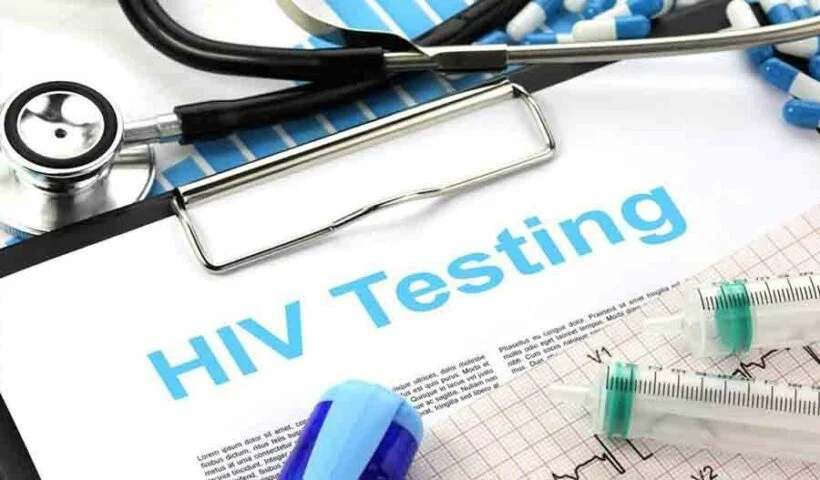Understanding the Risks of Skipping Tests For HIV and How to Overcome Barriers to Screening
HIV (Human Immunodeficiency Virus) is a deadly virus that affects the immune system of an individual. Without proper treatment, HIV can lead to AIDS (Acquired Immune Deficiency Syndrome), which can cause severe damage to the body and may lead to death. HIV can spread through unprotected sexual intercourse, sharing needles or syringes, from mother to child during pregnancy, childbirth, or breastfeeding, or by receiving contaminated blood transfusions. HIV testing is crucial to detect the virus at an early stage and start treatment promptly. In this article, we will discuss the risks of skipping tests and how to overcome barriers to screening.
Risks of Skipping Test For HIV:
Skipping HIV testing can have severe consequences on an individual’s health and well-being. Some of the risks associated with skipping tests are:
- Delayed Treatment: HIV treatment is most effective when started early. Delaying tests and treatments can lead to the virus damaging the immune system, making it harder for the body to fight infections and illnesses. Delayed treatment also increases the risk of developing AIDS and other HIV-related complications.
- Increased Risk of Transmission: HIV can spread easily from person to person. People who skip tests and are unaware of their HIV status may unknowingly transmit the virus to their sexual partners, or to their unborn child during pregnancy, childbirth, or breastfeeding.
- Progression of the Disease: Without proper treatment, HIV can progress to AIDS, which can cause severe damage to the body and may lead to death. Skipping examination increases the risk of developing AIDS and other HIV-related complications.
- Stigma and Discrimination: HIV-related stigma and discrimination can prevent individuals from seeking tests and treatment. The fear of being ostracized, rejected, or discriminated against can cause people to avoid HIV examinations, which can lead to delayed diagnosis and treatment.

How to Overcome Barriers to Screening:
There are several barriers to HIV testing that prevent individuals from seeking diagnosis and treatment. These barriers can include fear, stigma, lack of knowledge, and lack of access to healthcare. Here are some ways to overcome these barriers:
Educate Yourself:
Learn about HIV, how it spreads, and the importance of diagnosis and treatment. Knowing the facts can help reduce the fear and stigma associated with HIV and encourage people to seek tests and treatment.
Reduce Stigma:
Stigma and discrimination associated with HIV can prevent individuals from seeking diagnosis and treatment. It is essential to reduce stigma and create a safe and supportive environment for people living with HIV. This can be achieved through education, awareness campaigns, and community outreach.
Access to Healthcare:
Lack of access to healthcare can be a significant barrier to HIV examinations and treatment. Governments and healthcare providers can take steps to increase access to healthcare services, especially in underserved communities.
Normalization of Testing:
Normalizing HIV diagnosis can help reduce the fear and stigma associated with testing. Healthcare providers can encourage routine HIV diagnosis can be made available in non-traditional settings such as community centers, workplaces, and schools.
The Importance of Early Diagnosis:
Early diagnosis is critical to managing HIV. Starting treatment early can help prevent the virus from damaging the immune system and reduce the risk of developing AIDS. HIV diagnosis is the only way to know your status and take appropriate steps to manage your health.
The Role of Healthcare Providers:
Healthcare providers play a critical role in encouraging diagnosis and reducing barriers to screening. They can provide education, support, and resources to help individuals understand the importance of diagnosis and reduce the stigma associated with HIV. Healthcare providers can also provide counseling and treatment options to help individuals manage their health.

The Benefits of Treatment:
HIV treatment has come a long way in recent years, and there are now highly effective medications available to manage the virus. Treatment can help individuals live longer, healthier lives and reduce the risk of transmission to others. People living with HIV who are on treatment and have an undetectable viral load cannot transmit the virus sexually.
The Role of Communities:
Communities can also play a critical role in reducing barriers to diagnosis. Community-based organizations can provide education, support, and resources to help individuals access testing and treatment. Peer support groups can also help reduce stigma and provide a safe and supportive environment for people living with HIV.
The Importance of Confidentiality:
Confidentiality is critical in HIV testing and treatment. Individuals should feel safe and comfortable seeking diagnosis and treatment without fear of discrimination or breach of confidentiality. Healthcare providers and community-based organizations should ensure that individuals’ confidentiality is protected at all times.
The Role of Technology:
Technology can also play a significant role in increasing access to diagnosis and treatment. Telemedicine and mobile health apps can provide remote access to healthcare services and improve the availability of tests and treatment options.
Conclusion:
Skipping HIV examinations can have severe consequences on an individual’s health and well-being. Delayed diagnosis and treatment can lead to the progression of the disease, increased risk of transmission, and HIV-related stigma and discrimination. Overcoming barriers to HIV diagnosis, such as fear, stigma, lack of knowledge, and lack of access to healthcare, is crucial to encourage people to seek diagnosis and treatment. Educating oneself, reducing stigma, increasing access to healthcare, and normalizing diagnosis are all essential steps in overcoming barriers to HIV testing and improving health outcomes for people living with HIV.
Related Tag: HIV Clinic Jacksonville FL






